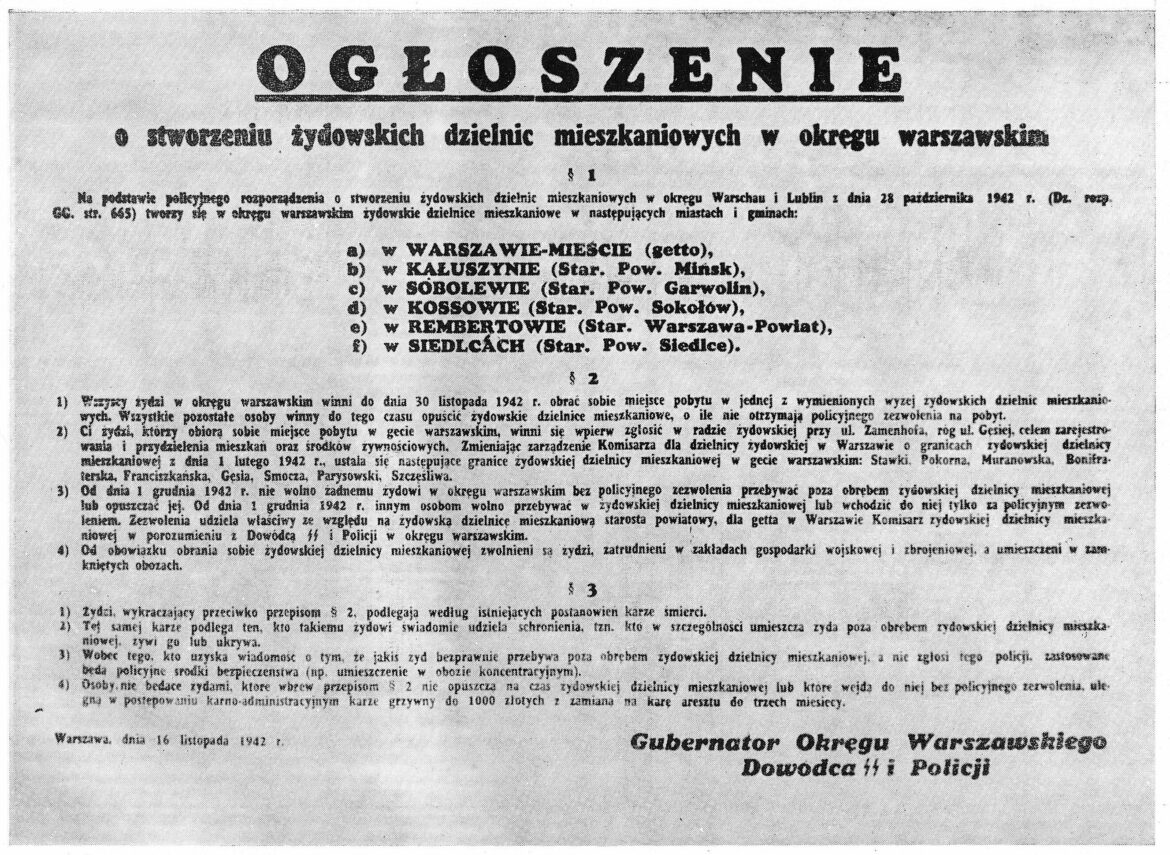Rembertów is a town which, in the interwar period, was inhabited by 2,000 Jews who made up 10% of the town’s population. During the Second World War, the persecuted Jews, locked by the Germans in the Rembertów ghetto, were helped by Poles. One of them was Jan Wieczorkowski.
During the September campaign of 1939 Rembertów suffered from German air raids. They caused a mass flight of Jewish inhabitants to the east. When the Germans entered the town on 12 September, the persecution of Jews and the plundering of their property began at once. The following year, the Rembertów ghetto was established and the German occupiers decided to fence it in with barbed wire. Only about 1,800 Jewish people lived there. Many of them worked in the nearby German warehouses and labour camps located on the premises of the former “Pocisk” ammunition plant and the “Poligon” factory.
In 1942, the liquidation of the ghetto began, marking the extermination of its inhabitants. Between 19 and 20 August, the Jews were first transported to Falenica and Miedzeszyn, from where the Germans directed them to the Treblinka death camp.
Before it happened, prominent assistance to the Jewish population was provided by Jan Ryszard Wieczorkowski – a forced labourer working in the warehouse in the premises of the former “Pocisk” plant. He selflessly delivered food and shoes to the ghetto. He also helped Jews to escape. This help was all the easier as Wieczorkowski, sorting war material in the German factories, met Jewish workers.
Together with them he even organised a sabotage action in the factory destroying silk bags used to store gunpowder. Unfortunately, the Germans realised that sabotage was being carried out in the factory and arrested some of the workers. Among them was Wieczorkowski, who, however, after serving his prison sentence, happily returned to the warehouse.
The merits of the Pole were confirmed after the war by Bernard Laufgass, a Rembertów Jew. He also mentioned that Wieczorkowski had provided him with a false kennkarte in the name of Marian Kowalski, thanks to which he was able to leave as a Christian to perform forced labour in the Third Reich and survive the war time there.
Unfortunately, this story has still not been developed – we do not know whether Wieczorkowski acted alone or as part of the Polish Underground State. Laufgass, who made a statement to Polish institutions in 1950 about Wieczorkowski’s help, also remains a mystery and there is no trace of him.





